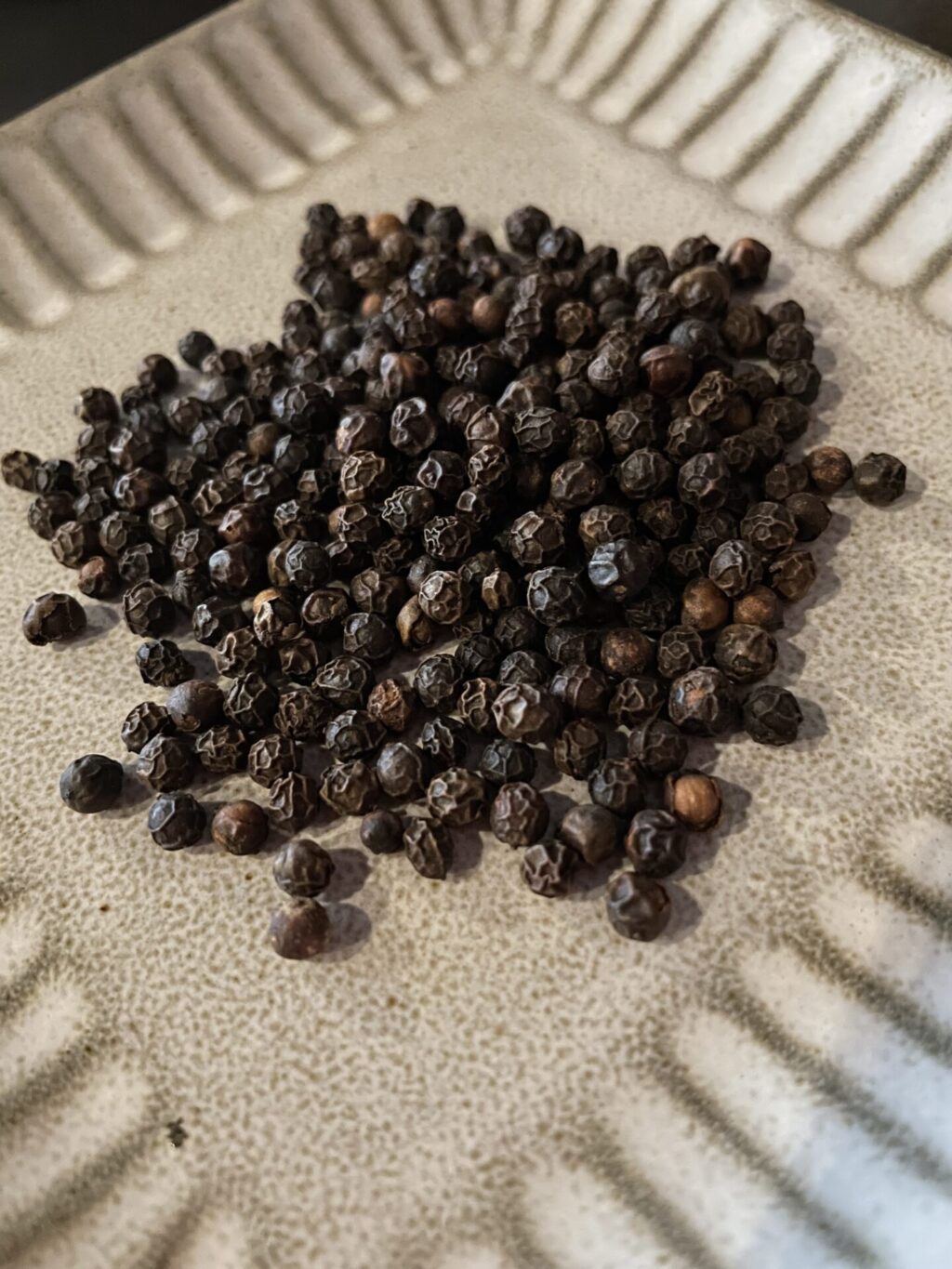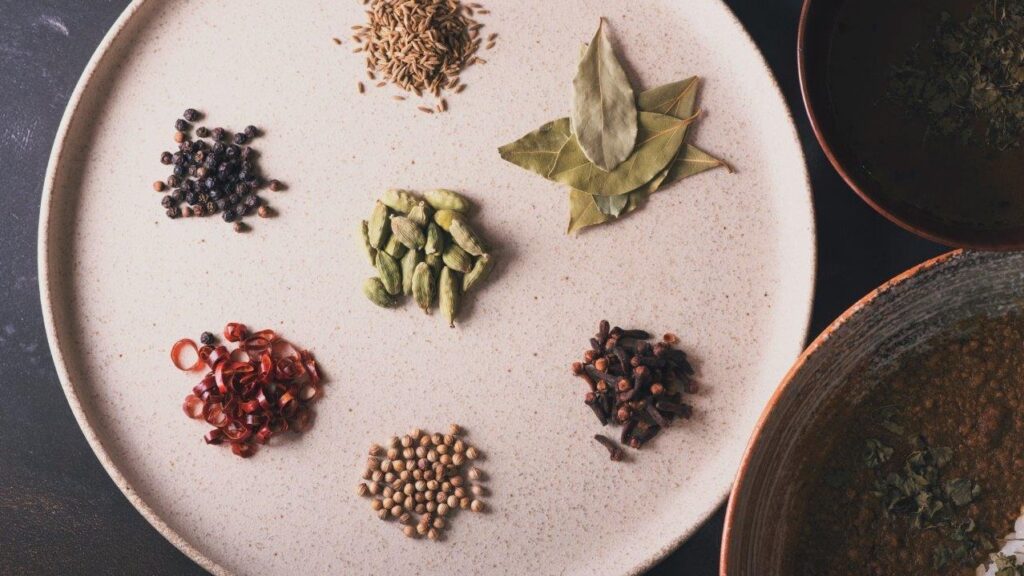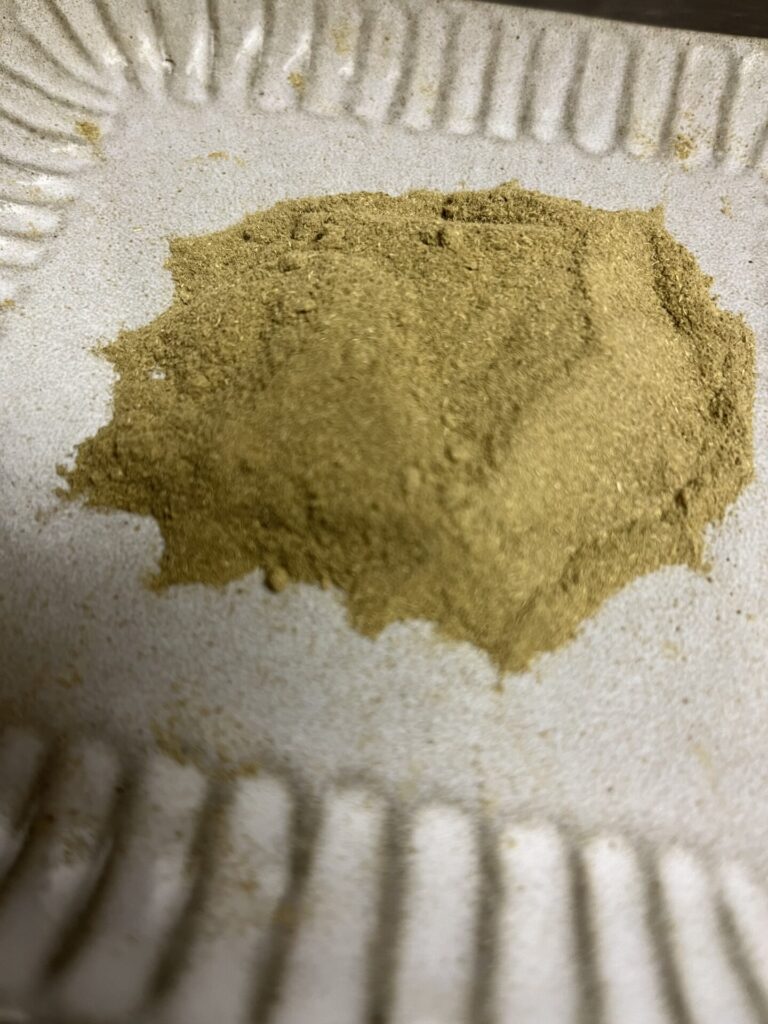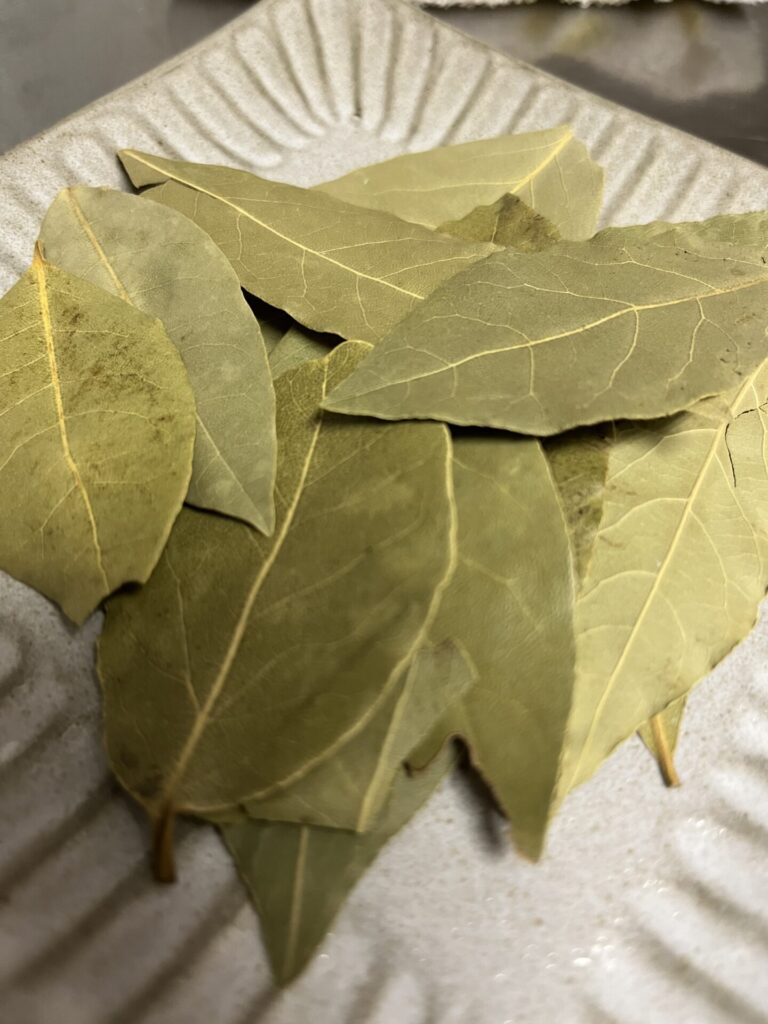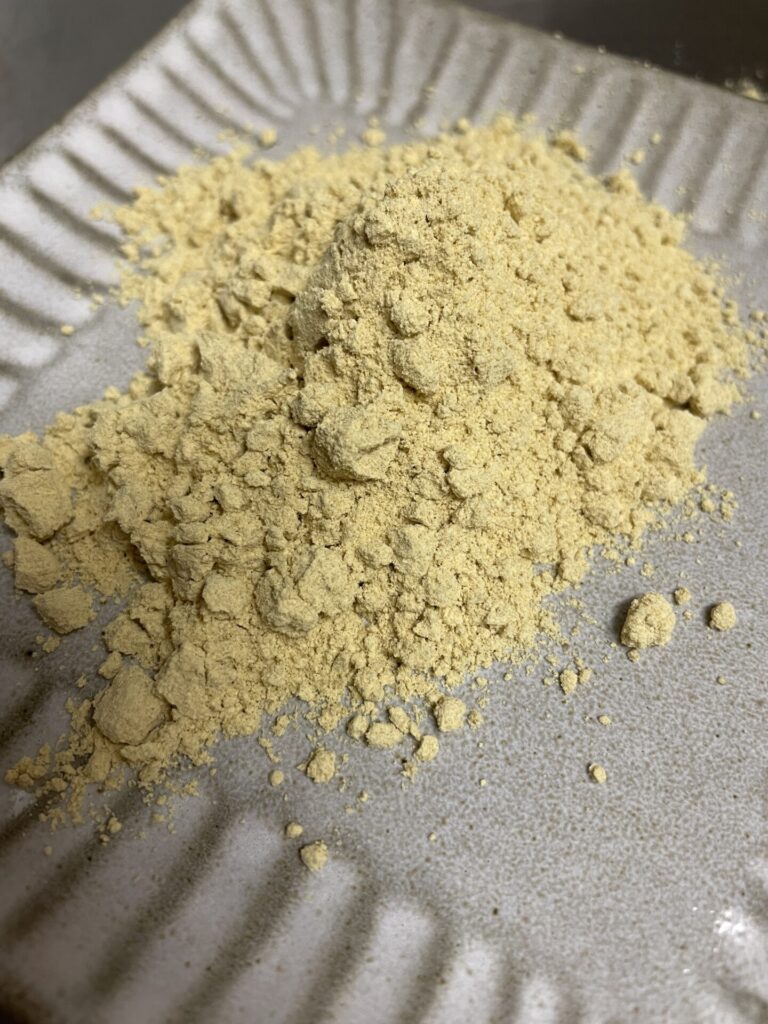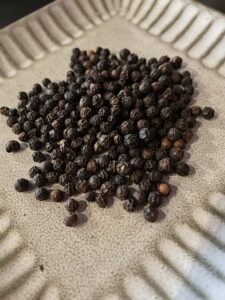 Black pepper has a warm, complex combination of woody, lemony notes and a twangy aroma to the nose.
Black pepper has a warm, complex combination of woody, lemony notes and a twangy aroma to the nose.
To produce black pepper, unripe green peppers are harvested and fermented for a short period of time before drying.
The wrinkling of the fruit is created at this time.
The best quality peppers are said to come from the Wainad district on the Malabar coast in the state of Kerala, southwest India.
History of Pepper
Its place of origin is India.
It has long been a major export of India and was used in trade with other parts of the world.
Indian peppercorns or long peppers were brought to Europe at least 3,000 years ago.
The trade routes were so important that there were constant conflicts among countries over the trade routes. By the time it reached Europe from India, where it originated, through the hands of many merchants, it had become so valuable that a silver coin was worth the same as a grain of pepper.
In Japan, pepper was introduced to Japan around the Nara period (710-794) and was used as a herbal medicine.
In the Heian period (794-1185), it was used as a seasoning.
It was also used for udon noodles and other dishes until chili peppers were imported.
It is cultivated in many parts of the world, but nowadays Vietnam and Indonesia seem to surpass India in production.
Medicinal effects of pepper
Pepper has been used as a medicine for centuries. It seems to have various beneficial effects, some of which are introduced below.
(1) Perspiration
Piperine in pepper stimulates the sympathetic nervous system, widening blood vessels and improving blood flow.
This leads to sweating and improved energy metabolism efficiency.
It also contains iron, which is effective against anemia and sensitivity to cold.
(2) Sterilizing action
The effect of the ingredient piperine is bactericidal.
In the past, refrigeration technology was not developed, so it was valued as a disinfectant and preservative to make food last longer.
Piperine’s bactericidal effect has also been shown to expel bacteria from the body.
Piperine also increases the brain chemicals serotonin and endorphins, which help relieve stress and calm the mind.
Piperine also has another important effect: it improves digestive function and increases appetite.
Improved digestive function allows the body to absorb the nutrients it ingests more efficiently.
When the absorption rate of nutrients is increased, the efficacy of the nutrients themselves is also increased, which leads to better health benefits.
(3) Dietary effect
Piperine’s ability to improve blood circulation leads to increased metabolic efficiency, making it easier for the body to burn fat.
It is effective in reducing fat accumulation, making it an effective ingredient for weight loss.
Furthermore, piperine also has antioxidant properties, making it effective for anti-aging as it prevents skin aging and reduces oxidation. Despite the herbal benefits of pepper, there are some disadvantages, such as abdominal pain if taken in excess.
The recommended daily intake is about a teaspoonful, so be careful not to take too much!
How to cook and store pepper, etc.
Pepper itself is neither sweet nor spicy, but has a pungent aroma.
Therefore, it is often used in tangy dishes, but it is also used as an accent in sweet breads and cakes.
It is used in foods all over the world to flavor dressings and sauces, and is also crushed and added to marinades.
Ground pepper is rubbed into fish and meat.
It is recommended to buy them whole and grind them in a mill as needed, as the aroma and flavor will rapidly disappear when ground into a powder. Can be stored in an airtight container for up to a year.
Finally
This is the first edition of our spices and herbal medicines.
How was it? I am sure that many of you are familiar with pepper, but I will continue to do my best to make the contents as useful as possible for you!
In the next issue, we will introduce one of the four major spices, nutmeg.


